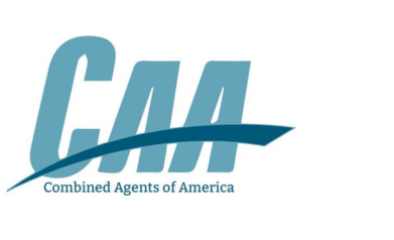Policy Cancellation and Nonrenewal
NOTE: Effective for policies delivered, issued for delivery, or renewed on or after January 1, 2018.
A notice of non-renewal is not required for personal auto, residential property including farm or ranch owners, or property and casualty coverage for governmental agencies if the insurance company notifies the insured at least 30 days in advance of a material change in the coverage at renewal. Material change is defined as:
- A reduction of coverage
- A chance in conditions of coverage
- A change in the duties of the policyholder.
Individual Policy Provisions (Effective 9.1.2019)
Monoline Commercial Property and Texas Standard Fire (excluding dwelling and government units)
Cancellation Restriction:
- Prior to 60 days in force, if not a renewal, policy can be cancelled for any reason.
- After 60 days in force, or if it is a renewal policy, policy can be cancelled only for (i) fraud in obtaining coverage, (ii) nonpayment, (iii) increase in hazard within insured's control which produce an increase in rate, (iv) loss of reinsurance, (v) approved by TDI for company solvency.
- Policy cannot be cancelled solely because the insured is an elected official.
Cancellation Notice:
30 days' notice to insured and mortgagee, except for nonpayment of premium then 14 days' notice to the insured and mortgagee. Exception: If the insured is a condominium association, 30 days' notice is required for nonpayment of premium.
Nonrenewal Restriction:
- The company may not nonrenew solely because the insured is an elected official.
- A policy covering a church cannot be nonrenewed because of a previous occurrence of arson or a threat of arson against the church.
- If the insured is a condominium association, 30 days' notice.
Return Premium:
Based on company filing, short rate or pro rata.
Other Provisions:
- In addition to any other remedy provided by law, any policy cancellation or restriction of coverage made in violation of the laws, rules or policy provisions are deemed to be null and void and of no effect.
- Policies on which notice of nonrenewal is not given as required must be renewed at the request of the insured.
- An insurer may not use an endorsement that reduces coverage unless (1) the insured requests the endorsement, or (2) the insurer provides the policyholder with a written explanation of the change made by the endorsement at least 30 days prior to renewal.
- The transfer of a policyholder between admitted companies within the same group is not considered a refusal to renew.
Property and Casualty Policies Insuring Government Units
Cancellation Restriction:
- Prior to 90 days in force, if not a renewal, policy can be cancelled for any reason.
- After 90 days in force, policy can be cancelled only for (i) nonpayment, (ii) violation of insurance code, (iii) fraudulent claim, (iv) increase in hazard within the insured's control which would produce an increase in the premium/rate of the policy.
- Policy cannot be cancelled solely because the insured is an elected official.
Cancellation Notice:
- 10 days' notice for any reason if the policy is in effect less than 90 days (calculated from the effective date of the policy to the date on which notice of cancellation is mailed).
- 10 days notice for nonpayment at any time.
- 10 days notice for the reasons permitted after the policy has been in effect 90 days.
Nonrenewal Notice:
- 60 days' advance notice.
Return Premium:
- Based on company filing, short rate or pro rata.
Other Provisions:
- The following actions by an insurer, without the consent of the insured, are considered the same as cancellation or nonrenewal, and therefore prohibited except as permitted by the cancellation or nonrenewal provision of the policy – see Commissioner's Bulletin #B-0020-06:
- Termination of coverage provided under the policy
- Refusal to provide additional coverage to which the insured is entitled under the policy
- Reduction or restriction of coverage under a policy by endorsement or other means
- The insurer must provide a written statement of the reason for cancellation or nonrenewal of or determination not to issue a policy, at the request of the insured. The written statement must state the precise incident, circumstance, or risk factor(s) applicable, and the source of the information that the insurer relied on to make its decision.
- An insurer may not cancel any policy, even within the permitted underwriting period, if the decision to cancel is motivated to any extent by the fact that the company has discontinued, or intends to discontinue, the writing of the line or class of insurance involved, to withdraw from the geographical area involved, or to withdraw from the agency through which the policy was written.
- If nonrenewal notice is mailed later than the 60th day before the expiration date, coverage remains in effect until the 61st day after the date on which the notice is mailed. Earned premium for any period of coverage that extends beyond the expiration date is computed pro rata based on the previous year's rates.
- If nonrenewal notice is NOT mailed prior to the expiration date, the policy must be renewed for the same term as the expiring policy.
- An insurer may comply with the nonrenewal notice provisions by requiring or permitting its agent to notify the policyholder. However, the responsibility for giving notice to the insured remains with the company if the agent fails to carry out its instructions to notify the insured.
- In addition to any other remedy provided by law, any policy cancellation or restriction of coverage made in violation of the laws, rules or policy provisions are deemed to be null and void and of no effect.
- An insurer must provide the policyholder with written notice of any difference between the policy offered at renewal and the policy held immediately before renewal.
- An insurer may not use an endorsement that reduces coverage unless (1) the insured requests the endorsement, or (2) the insurer provides the policyholder with a written explanation of the change made by the endorsement at least 30 days prior to renewal.
- Policies on which notice of nonrenewal is not given as required must be renewed at the request of the insured, except the policy terminates on the effective date of any replacement or succeeding insurance policy with another carrier.
- The transfer of a policyholder between admitted companies within the same group is not considered a refusal to renew.
Cancellation Restriction:
- Prior to 60 days in force, if not a renewal, policy can be cancelled only if there is a condition that increases the risk of hazard that was not disclosed on the application and that is not due to a prior claim. The insurer can also cancel if they do not accept an inspection report before the inception date.
- Policy can be cancelled any time for: (i) nonpayment, (ii) violation of insurance code, (iii) fraudulent claim, (iv) increase in hazard within the insured's control that would produce an increase in the premium/rate of the policy.
- Policy cannot be cancelled solely because the insured is an elected official.
Cancellation Notice:
- 30 days notice if the policy is in effect less than 60 days (calculated from the effective date of the policy to the date on which notice of cancellation is mailed)
- 10 days notice for nonpayment at anytime
- 10 days notice for the reasons permitted after the policy has been in effect 60 days
Nonrenewal Restrictions:
- Policy cannot be nonrenewed because of losses caused by natural causes. For other claims, the insured must file three or more claims under the policy in a three-year period. If the insured files two claims in a period of less than three years, the company may notify the insured in writing that filing a third claim may result in nonrenewal. If the insurer does not send this notice, it may not refuse to renew because of claims. Claims closed without payment may not be counted in determining the number of claims.
- The company may not nonrenew solely because the insured is an elected official.
Nonrenewal Notice:
- 30 days' advance notice. If notice is not given more than 30 days prior to expiration date, the policy must be renewed for the same term as the expiring policy.
Return Premium:
- Based on company filing, short rate or pro rata
- Premium must be refunded to the policyholder not later than the 15th business day after the effective date of cancellation (applicable to policies issued on or after Sept. 1, 2013).
Other Provisions:
- The following actions by an insurer, without the consent of the insured, are considered the same as cancellation or nonrenewal, and therefore prohibited except as permitted by the cancellation or nonrenewal provision of the policy – see Commissioner's Bulletin #B-0020-06:
- Termination of coverage provided under the policy
- Refusal to provide additional coverage to which the insured is entitled under the policy
- Reduction or restriction in coverage or a material change without proper notification
- The insurer must provide a written statement of the reason for cancellation or nonrenewal of or determination not to issue a policy, at the request of the insured. The written statement must state the precise incident, circumstance, or risk factor(s) applicable, and the source of the information that insurer relied on to make its decision.
- An insurer may not cancel any policy, even within the permitted underwriting period, if the decision to cancel is motivated to any extent by the fact that the company has discontinued, or intends to discontinue, the writing of the line or class of insurance involved, to withdraw from the geographical area involved, or to withdraw from the agency through which the policy was written.
- An insurer may comply with the nonrenewal notice provisions by requiring or permitting its agent to notify the policyholder. However, the responsibility for giving notice to the insured remains with the company if the agent fails to carry out its instructions to notify the insured.
- In addition to any other remedy provided by law, any policy cancellation or restriction of coverage made in violation of the laws, rules or policy provisions are deemed to be null and void and of no effect.
- An insurer must provide the policyholder with written notice of any difference between the policy offered at renewal and the policy held immediately before renewal.
- An insurer may not use an endorsement that reduces coverage unless (1) the insured requests the endorsement, or (2) the insurer provides the policyholder with a written explanation of the change made by the endorsement at least 30 days prior to renewal.
- Policies on which notice of nonrenewal is not given as required must be renewed at the request of the insured, except the policy terminates on the effective date of any replacement or succeeding insurance policy with another carrier.
- In the event of a divorce or legal separation, a spouse that is not a named insured on the policy may lose the benefits of that policy. Section 21.407 of the Texas Administrative Code provides that in such a situation, the insurance company is obligated to issue a policy that most nearly approximates the coverage in effect prior to the change in marital status without evidence of insurability. The expiration date of such a policy may be the same as that for the previous coverage.
- The transfer of a policyholder between admitted companies within the same group is not considered a refusal to renew.
Dwelling/Farm and Ranch/Farm and Ranchowners
Cancellation Restriction:
- Prior to 90 days in force, if not a renewal, policy can be cancelled for any reason.
- After 90 days in force, or if it is a renewal policy, policy can be cancelled only for (i) fraud in obtaining coverage, (ii) nonpayment, (iii) increase in hazard within insured's control which produce an increase in rate, (iv) loss of reinsurance, (v) approved by TDI for company solvency.
- Policy cannot be cancelled solely because the insured is an elected official.
Cancellation Notice:
- 30 days notice if the policy is in effect less than 90 days (calculated from the effective date of the policy to the date on which notice of cancellation is mailed)
- 10 days notice for nonpayment at anytime
- 10 days notice for the reasons permitted after the policy has been in effect 90 days
Nonrenewal Restrictions:
- Policy cannot be nonrenewed because of losses caused by natural causes. For other claims, the insured must file three or more claims under the policy in a three-year period. If the insured files two claims in a period of less than three years, the company may notify the insured in writing that filing a third claim may result in nonrenewal. If the insurer does not send this notice, it may not refuse to renew because of claims. Claims closed without payment may not be counted in determining the number of claims.
- The company may not nonrenew solely because the insured is an elected official.
- Refusal to renew means an insurer's refusal to renew in the same insurance company which originally issued the policy.
Nonrenewal Notice:
- 30 days' advance notice. If notice is not given more than 30 days prior to expiration date, the policy must be renewed for the same term as the expiring policy.
Return Premium:
- Based on company filing, short rate or pro rata
- Premium must be refunded to the policyholder not later than the 15th business day after the effective date of cancellation (applicable to policies issued on or after Sept. 1, 2013).
Other Provisions:
- The following actions by an insurer, without the consent of the insured, are considered the same as cancellation, and therefore prohibited except as permitted by the cancellation provision of the policy:
- Termination of coverage provided under the policy
- Refusal to provide additional coverage to which the insured is entitled under the policy
- Reduction or restriction of coverage under a policy by endorsement or other means
- The insurer must provide a written statement of the reason for cancellation or nonrenewal of or determination not to issue a policy, at the request of the insured. The written statement must state the precise incident, circumstance, or risk factor(s) applicable, and the source of the information that the insurer relied on to make its decision.
- An insurer may not cancel any policy, even within the permitted underwriting period, if the decision to cancel is motivated to any extent by the fact that the company has discontinued, or intends to discontinue, the writing of the line or class of insurance involved, to withdraw from the geographical area involved, or to withdraw from the agency through which the policy was written.
- An insurer may comply with the nonrenewal notice provisions by requiring or permitting its agent to notify the policyholder. However, the responsibility for giving notice to the insured remains with the company if the agent fails to carry out its instructions to notify the insured.
- In addition to any other remedy provided by law, any policy cancellation or restriction of coverage made in violation of the laws, rules or policy provisions are deemed to be null and void and of no effect.
- An insurer must provide the policyholder with written notice of any difference between the policy offered at renewal and the policy held immediately before renewal.
- An insurer may not use an endorsement that reduces coverage unless (1) the insured requests the endorsement, or (2) the insurer provides the policyholder with a written explanation of the change made by the endorsement at least 30 days prior to renewal.
- Policies on which notice of nonrenewal is not given as required must be renewed at the request of the insured, except the policy terminates on the effective date of any replacement or succeeding insurance policy with another carrier.
- In the event of a divorce or legal separation, a spouse that is not a named insured on the policy may lose the benefits of that policy. Section 21.407 of the Texas Administrative Code provides that in such a situation, the insurance company is obligated to issue a policy that most nearly approximates the coverage in effect prior to the change in marital status without evidence of insurability. The expiration date of such a policy may be the same as that for the previous coverage.
- The transfer of a policyholder between admitted companies within the same group is not considered a refusal to renew.
Commercial Auto (BAP, Garage) (Except when the policy insures a government unit)
Cancellation Restriction:
- Prior to 60 days in force, if not a renewal, policy can be cancelled for any reason.
- After 60 days in force, or if it is a renewal policy, policy can be cancelled only for (i) fraud in obtaining coverage, (ii) nonpayment, (iii) increase in hazard within insured's control which produce an increase in rate, (iv) loss of reinsurance, (v) approved by TDI for company solvency.
- Policy cannot be cancelled solely because the insured is an elected official.
Cancellation Notice:
- 10 days' notice for any reason within the first 60 days (calculated from the effective date of the policy to the date on which notice of cancellation is mailed)
- 10 days' notice for the reasons permitted after the policy has been in affect 60 days
Nonrenewal Restriction:
- Policy cannot be nonrenewed solely because the insured is an elected official.
Nonrenewal:
- 60 days' advance notice
Return Premium:
- Based on company filing, short rate or pro rata
Other Provisions:
- The following actions by an insurer, without the consent of the insured, are considered the same as cancellation or nonrenewal, and therefore prohibited except as permitted by the cancellation or nonrenewal provision of the policy - see Commissioner's Bulletin #B-0020-06:
- Termination of coverage provided under the policy
- Refusal to provide additional coverage to which the insured is entitled under the policy
- Reduction or restriction of coverage under a policy by endorsement or other means
- If nonrenewal notice is mailed later than the 60th day before the expiration date, coverage remains in effect until the 61st day after the date on which the notice is mailed. Earned premium for any period of coverage that extends beyond the expiration date is computed pro rata based on the previous year's rates.
- If nonrenewal notice is NOT mailed prior to the expiration date, the policy must be renewed for the same term as the expiring policy.
- Renewal means providing like and similar coverage to the expiring policy. An insurer may not restrict coverage on a renewal policy unless it has complied with the nonrenewal provisions.
- The transfer of a policyholder between admitted companies within the same group is not considered a refusal to renew.
- The insurer must state the reason for the cancellation or nonrenewal in the notice to the insured. The statement must include the precise incident, circumstance, or risk factor(s) applicable, and the source of the information that the insured relied on to make its decision.
- An insurer may not cancel any policy, even within the permitted underwriting period, if the decision to cancel is motivated to any extent by the fact that the company has discontinued, or intends to discontinue, the writing of the line or class of insurance involved, to withdraw from the geographical area involved, or to withdraw from the agency through which the policy was written.
- An insurer may comply with the nonrenewal notice provisions by requiring or permitting its agent to notify the policyholder. However, the responsibility for giving notice to the insured remains with the company if the agent fails to carry out its instructions to notify the insured.
- In addition to any other remedy provided by law, any policy cancellation or restriction of coverage made in violation of the laws, rules or policy provisions are deemed to be null and void and of no effect. Policies on which notice of nonrenewal is not given as required must be renewed at the request of the insured.
Commercial Liability (CGL, Professional, Umbrella) (Except when the policy insures a government unit)
Cancellation Restriction:
- Prior to 60 days in force, if not a renewal, policy can be cancelled for any reason.
- After 60 days in force, or if it is a renewal policy, policy can be cancelled only for (i) fraud in obtaining coverage, (ii) nonpayment, (iii) increase in hazard within insured's control which produce an increase in rate, (iv) loss of reinsurance, (v) approved by TDI for company solvency.
- Policy cannot be cancelled solely because the insured is an elected official.
Cancellation Notice:
- 10 days' notice for any reason within the first 60 days (calculated from the effective date of the policy to the date on which notice of cancellation is mailed) (Exception: hospital and medical professional – 90 days)
- 10 days' notice for the reasons permitted after the policy has been in affect 60 days
Nonrenewal Restriction:
- Policy cannot be nonrenewed solely because the insured is an elected official.
Nonrenewal:
- 60 days' advance notice (Exception: hospital and medical professional – 90 days)
Return Premium:
- Based on company filing, short rate or pro rata.
Other Provisions:
- The following actions by an insurer, without the consent of the insured, are considered the same as cancellation or nonrenewal, and therefore prohibited except as permitted by the cancellation or nonrenewal provision of the policy – see Commissioner's Bulletin #B-0020-06:
- Termination of coverage provided under the policy
- Refusal to provide additional coverage to which the insured is entitled under the policy
- Reduction or restriction of coverage under a policy by endorsement or other means
- If nonrenewal notice is mailed later than the 60th day before the expiration date, coverage remains in effect until the 61st day after the date on which the notice is mailed. Earned premium for any period of coverage that extends beyond the expiration date is computed pro rata based on the previous year's rates.
- If nonrenewal notice is NOT mailed prior to the expiration date, the policy must be renewed for the same term as the expiring policy.
- Renewal means providing like and similar coverage to the expiring policy. An insurer may not restrict coverage on a renewal policy unless it has complied with the nonrenewal provisions.
- The transfer of a policyholder between admitted companies within the same group is not considered a refusal to renew.
- The insurer must state the reason for the cancellation or nonrenewal in the notice to the insured. The statement must include the precise incident, circumstance, or risk factor(s) applicable, and the source of the information that the insured relied on to make its decision.
- An insurer may not cancel any policy, even within the permitted underwriting period, if the decision to cancel is motivated to any extent by the fact that the company has discontinued, or intends to discontinue, the writing of the line or class of insurance involved, to withdraw from the geographical area involved, or to withdraw from the agency through which the policy was written.
- An insurer may comply with the nonrenewal notice provisions by requiring or permitting its agent to notify the policyholder. However, the responsibility for giving notice to the insured remains with the company if the agent fails to carry out its instructions to notify the insured.
- In addition to any other remedy provided by law, any policy cancellation or restriction of coverage made in violation of the laws, rules or policy provisions are deemed to be null and void and of no effect. Policies on which notice of nonrenewal is not given as required must be renewed at the request of the insured.
- (Personal Umbrella only) In the event of a divorce or legal separation, a spouse that is not a named insured on the policy may lose the benefits of that policy. Section 21.407 of the Texas Administrative Code provides that in such a situation, the insurance company is obligated to issue a policy that most nearly approximates the coverage in effect prior to the change in marital status without evidence of insurability. The expiration date of such a policy may be the same as that for the previous coverage.
Commercial Package and Business Owners (Except when the policy ensures a government unit)
Cancellation Restriction:
- Prior to 60 days in force, if not a renewal, policy can be cancelled for any reason.
- After 60 days in force, or if it is a renewal policy, policy can be cancelled only for (i) fraud in obtaining coverage, (ii) nonpayment, (iii) increase in hazard within insured's control which produce an increase in rate, (iv) loss of reinsurance, (v) approved by TDI for company solvency.
- Policy cannot be cancelled solely because the insured is an elected official.
Cancellation Notice:
- 10 days' notice for any reason within the first 60 days (calculated from the effective date of the policy to the date on which notice of cancellation is mailed) (Exception: hospital and medical professional – 90 days)
- 10 days' notice for the reasons permitted after the policy has been in affect 60 days
Nonrenewal Restriction:
- Policy cannot be nonrenewed solely because the insured is an elected official.
Nonrenewal:
- 60 days' advance notice.
Return Premium:
- Based on company filing, short rate or pro rata.
Other Provisions:
- The following actions by an insurer, without the consent of the insured, are considered the same as cancellation or nonrenewal, and therefore prohibited except as permitted by the cancellation or nonrenewal provision of the policy – see Commissioner’s Bulletin #B-0020-06:
- Termination of coverage provided under the policy
- Refusal to provide additional coverage to which the insured is entitled under the policy
- Reduction or restriction of coverage under a policy by endorsement or other means
- If nonrenewal notice is mailed later than the 60th day before the expiration date, coverage remains in effect until the 61st day after the date on which the notice is mailed. Earned premium for any period of coverage that extends beyond the expiration date is computed pro rata based on the previous year's rates.
- If nonrenewal notice is NOT mailed prior to the expiration date, the policy must be renewed for the same term as the expiring policy.
- Renewal means providing like and similar coverage to the expiring policy. An insurer may not restrict coverage on a renewal policy unless it has complied with the nonrenewal provisions.
- The transfer of a policyholder between admitted companies within the same group is not considered a refusal to renew.
- The insurer must state the reason for the cancellation or nonrenewal in the notice to the insured. The statement must include the precise incident, circumstance, or risk factor(s) applicable, and the source of the information that the insured relied on to make its decision.
- An insurer may not cancel any policy, even within the permitted underwriting period, if the decision to cancel is motivated to any extent by the fact that the company has discontinued, or intends to discontinue, the writing of the line or class of insurance involved, to withdraw from the geographical area involved, or to withdraw from the agency through which the policy was written.
- An insurer may comply with the nonrenewal notice provisions by requiring or permitting its agent to notify the policyholder. However, the responsibility for giving notice to the insured remains with the company if the agent fails to carry out its instructions to notify the insured.
- In addition to any other remedy provided by law, any policy cancellation or restriction of coverage made in violation of the laws, rules or policy provisions are deemed to be null and void and of no effect. Policies on which notice of nonrenewal is not given as required must be renewed at the request of the insured.
Cancellation Restriction:
- Prior to 60 days in force, if not a renewal, policy can be cancelled for any reason.
- After a new policy has been in force for 60 days, the policy can be cancelled only for:
- nonpayment
- fraudulent claim
- if the drivers license or motor vehicle registration of the named insured or any other motor vehicle operator who resides in the same household as the named insured or who customarily operates an automobile covered by the policy is suspended or revoked. However, if the named insured consents to an endorsement terminating coverage under the policy for the person whose license is suspended or revoked, the insurer may not cancel the policy.
- An insurer may not cancel based solely because the insured is an elected official.
Cancellation Notice:
- 10 days' notice for any reason within the first 60 days (calculated from the effective date of the policy to the date on which notice of cancellation is mailed)
- 10 days' notice for the reasons permitted after the policy has been in affect 60 days
Nonrenewal Restriction:
- None of the following may be used for the sole basis for a refusal to renew:
- Claims involving damage from a weather related incident that does not involve a collision.
- Accidents or claims involving damage by contact with animals or fowls.
- Accidents or claims involving damage caused by flying gravel, missiles or falling objects; provided, however, on renewal the insurer may increase the deductible to $250 or the next higher deductible increment in the event of three losses in any 36 month period.
- Towing and labor claims; however, the insurer may eliminate this coverage in the event of four towing and labor claims in any 36 month period.
- Any other not-at-fault claims or accidents, unless there are two or more in any 12 month period.
- A person's age may not be used as a reason nor because the insured is an elected official.
- If the policy term is for less than one year, nonrenewal must be on the anniversary of the original effective date of the policy.
Nonrenewal:
- 30 days notice
Return Premium:
- Based on company filing, short rate or pro rata
- Premium must be refunded to the policyholder not later than the 15th business day after the effective date of cancellation (applicable to policies issued on or after Sept. 1, 2013).
Other Provisions:
- The following actions by an insurer, without the consent of the insured, are considered the same as cancellation or nonrenewal, and therefore prohibited except as permitted by the cancellation or nonrenewal provision of the policy – see Commissioner's Bulletin #B-0020-06:
- Termination of coverage provided under the policy
- Refusal to provide additional coverage to which the insured is entitled under the policy
- Reduction or restriction of coverage under a policy by endorsement or other means
- The insurer must provide a written statement of the reason for cancellation or nonrenewal of or determination not to issue a policy, at the request of the insured. The written statement must state the precise incident, circumstance, or risk factor(s) applicable, and the source of the information that the insurer relied on to make its decision.
- An insurer may not cancel any policy, even within the permitted underwriting period, if the decision to cancel is motivated to any extent by the fact that the company has discontinued, or intends to discontinue, the writing of the line or class of insurance involved, to withdraw from the geographical area involved, or to withdraw from the agency through which the policy was written.
- An insurer may comply with the nonrenewal notice provisions by requiring or permitting its agent to notify the policyholder. However, the responsibility for giving notice to the insured remains with the company if the agent fails to carry out its instructions to notify the insured.
- In addition to any other remedy provided by law, any policy cancellation or restriction of coverage made in violation of the laws, rules or policy provisions are deemed to be null and void and of no effect.
- An insurer may not use an endorsement that reduces coverage unless (1) the insured requests the endorsement, or (2) the insurer provides the policyholder with a written explanation of the change made by the endorsement at least 30 days prior to renewal.
- Policies on which notice of nonrenewal is not given as required must be renewed at the request of the insured, except the policy terminates on the effective date of any replacement or succeeding insurance policy with another carrier.
- In the event of a divorce or legal separation, a spouse that is not a named insured on the policy may lose the benefits of that policy. Section 21.407 of the Texas Administrative Code provides that in such a situation, the insurance company is obligated to issue a policy that most nearly approximates the coverage in effect prior to the change in marital status without evidence of insurability. The expiration date of such a policy may be the same as that for the previous coverage.
- The transfer of a policyholder between admitted companies within the same group is not considered a refusal to renew.
Cancellation Restriction:
- Policy cannot be cancelled solely because the insured is an elected official.
Cancellation Notice:
- 30 days' notice, except 10 days' notice for (i) fraud, (ii) nonpayment, (iii) increase in hazard within insured's control which would produce an increase in rate, (iv) failure to comply with reasonable loss control recommendations, (v) TDI determination of law violation or danger to public.
- Notice must be sent to the policyholder and TWCC by certified mail.
Nonrenewal Restriction:
- Policy cannot be nonrenewed solely on the reason the insured is an elected official.
Nonrenewal:
- 30 days advance notice, except 10 days' notice for (i) fraud, (ii) nonpayment, (iii) increase in hazard within insured's control which would produce an increase in rate, (iv) failure to comply with reasonable loss control recommendations, (v) TDI determination of law violation or danger to public.
- If notice of nonrenewal is given within the 30 days prior to the expiration date of the policy, the policy must be extended for the amount of time required to comply with 30-day notice requirement.
- Notice must be sent to the policyholder and TWCC by certified mail.
Return Premium:
- Pro rata
Other Provisions:
- An insurer may not cancel any policy, even within the permitted underwriting period, if the decision to cancel is motivated to any extent by the fact that the company has discontinued, or intends to discontinue, the writing of the line or class of insurance involved, to withdraw from the geographical area involved, or to withdraw from the agency through which the policy was written.
- An insurer may comply with the nonrenewal notice provisions by requiring or permitting its agent to notify the policyholder. However, the responsibility for giving notice to the insured remains with the company if the agent fails to carry out its instructions to notify the insured.
- In addition to any other remedy provided by law, any policy cancellation or restriction of coverage made in violation of the laws, rules or policy provisions are deemed to be null and void and of no effect. Policies on which notice of nonrenewal is not given as required must be renewed at the request of the insured.
- The transfer of a policyholder between admitted companies within the same group is not considered a refusal to renew.
Premium Refunds
- A return premium on one policy may not be applied to the insured's account to cover premiums due on other policies.
- Each policy written for an insured stands on its own. If an insured has an uncollected balance on audits, expired or cancelled policies and the agent writes other insurance for the same insured, monies collected or return premiums must be applied to the applicable policy.
- Existing insurance may not be cancelled for nonpayment of premium when the insured has renewed coverage with the promise to pay the old balance but has paid only for the renewed policies. If the insurance in force is paid, it cannot be cancelled for nonpayment due to a past due balance on other policies.
- However, the Workers' Compensation Division of the Texas Department of Insurance does not object to an insurance company cancelling a current workers' compensation policy for failure to pay premium due on a prior policy written by the same company. They would require a 30 day notice of the cancellation.
- Also relating to unpaid balances is the question of holding claim checks for claims where the policy premium has not been paid. An agent may not hold a claim check due to an unpaid balance and a company cannot refuse to pay a covered claim on a current, in-force policy because the premium is owed.
Reductions in Coverage Same as Cancellation or Nonrenewal
The following actions by an insurer, without the consent of the insured, are considered the same as cancellation or nonrenewal, and therefore prohibited except as permitted by the cancellation or nonrenewal provision of the policy – see Commissioner's Bulletin #B-0020-06:
- Termination of coverage provided under the policy
- Refusal to provide additional coverage to which the insured is entitled under the policy
- Reduction or restriction of coverage under a policy by endorsement or other means
Premium Note Cancellations
- Refunds for cancellation due to nonpayment of a premium note may be calculated short-rate, where short-rate is permitted by the terms of the policy or manual. The premium note, which must be signed by the insured, usually contains a statement regarding power of attorney. Should the insured fail to pay the premium, this statement gives the note department the power to request policy cancellation in the name of the insured. Therefore, the cancellation would be completed as if it were at the insured's request.
- The Texas Insurance Code addresses this issue in Article 24.17, Section (d): "After expiration of the period given to cure the default, the premium finance company may cancel the insurance contract or contracts by mailing to the insurer a notice of cancellation. The insurance contract shall be cancelled as if the notice of cancellation had been submitted by the insured, but without requiring the return of the insurance contracts."
An Agent's Right to Nonrenew
Ownership and control of expirations are the cornerstones of the independent agency system. This idea traditionally has included not only an agency's rights to select the customers it prefers and to place those customers with the insurance company it determines is most appropriate, but also the right to terminate the agency's relationship with a customer at any time. This latter right is being tested today as never before, as consumer groups advocate the position that agents and companies should "take all comers" and keep clients on the books until some serious underwriting flaw becomes evident.
IIAT's Position
The Independent Insurance Agents of Texas advocates the position that an independent agency controls its own business relationships and, therefore, has the right to terminate any client relationship, as long as the agency complies with prohibitions against illegal discrimination (based on race, religion, color or national origin) and with rules, laws and policy provisions regarding proper notice of cancellation and nonrenewal. According to a legal opinion from IIAA's general counsel, an agency's customer does not have a contractual right to the agency's services. An agency, therefore, does not need the company's permission to terminate the agency's relationship with the customer. IIAT believes that an agency has the right to request nonrenewal of a policy for its own reasons, which may have nothing to do with company underwriting guidelines. For example:
- The agency may wish to target a particular market segment through minimum standards with regard to account size, limits of liability, or the purchase of optional coverages.
- In an effort to maintain a profitable book of business and maximize its opportunity to benefit from company profit-sharing arrangements, the agency may impose underwriting guidelines that are more stringent than the company's guidelines.
- An agency, particularly in a small town, may be aware of an insured's personal reputation or characteristics, such as heavy drinking, that could increase the exposure to loss.
- The insured may display disruptive behavior in the agent's office or be discourteous or even abusive to agency employees.
A Company's Right to Nonrenew
Many phone calls from members to the IIAT office on this issue indicate that some companies are reluctant to issue nonrenewal notices at the agency's request because they don't want to run afoul of Texas' nonrenewal requirements and prohibitions. It may be helpful, therefore, to review the rules and laws that affect a company's right to nonrenew a policy. Each policy is different, but generally, the company has a right to nonrenew a policy within a specified period for any reason unless the right to use a particular reason is restricted by law, rule or policy provision.
Agents' and Companies' Responsibilities
Subject to these exceptions, and to prohibitions concerning illegal discrimination, a company may nonrenew for any other reason. Therefore, a company should accept an agency's nonrenewal request once the company is satisfied that the agency is not making the request based on a reason that is restricted by law or rule. The company must be willing to provide a written statement concerning the reason for nonrenewal. The statement must fully explain the agent's decision to nonrenew, giving the precise incident, circumstance or risk factor(s) involved in the decision. In addition, the insurer must state that the agent is the source of information relied on regarding the incident.
Despite the fact that an agency has a right to request termination of its relationship with the customer, an agency does not have independent authority to send a policyholder a nonrenewal notice. The insurance contract gives the insurer this authority. The policy is a two-party contract between the insurance company and the named insured, and the agency is not a party. The policy authorizes only the insurance company to send a nonrenewal notice, subject to certain stated exceptions. In any business transaction, however, an entity may authorize an agent to act on its behalf, whether that be an employee of the entity or an outside party. With specific authority granted by the company, as either an addendum to the agency agreement or a letter from the company for a particular policy, the agency can have the express authority to nonrenew a policy. It must use the company nonrenewal form in such cases, not the agency's letterhead. However, in light of the restrictions various laws, rules and policy provisions place on the nonrenewal right, a company may be reluctant to give an agency unlimited authority to issue nonrenewal notices.
If a Company Refuses to Nonrenew
What can an agency do if the company refuses to send nonrenewal notices at the agency's request or to grant specific authority for the agency to send notices? Nothing. Try having another talk with the insureds to convince them that it would be in their best interest to find another insurance agency to service their business. If they agree, get it in writing.
- Chapter 1901 of the Texas Insurance Code applies to hospital and medical professional liability.
- Subchapter B of Chapter 551 of the Texas Insurance Code applies to general liability, professional liability, commercial auto liability, and commercial multiperil policies.
- Subchapter C of Chapter 551 of the Texas Insurance Code applies to residential property and personal auto policies.
- Subchapter D of Chapter 551 of the Texas Insurance Code prohibits cancellation or nonrenewal based solely on the fact that the policyholder is an elected official.
- Chapter 2002 of the Texas Insurance Code applies to residential and commercial property insurance policies
- Section 558.002 of the Texas Insurance Code, as amended by Senate Bill 698, requires the insurer to provide premium refund to the policyholder not later than the 15th business day after the effective date of cancellation – applicable to residential property and personal auto policies issued on or after Sept. 1, 2013.
- Section 5.7016 of the Texas Administrative Code prohibits nonrenewal of personal auto policies based on certain types and numbers of claims. Generally, weather-related and other not-at-fault claims may not be used as reasons for nonrenewal.
- Section 21.1001 of the Texas Administrative Code prohibits nonrenewal or requirement of a named driver exclusion as a condition of renewal solely because a family member reaches driving age.
- Section 21.1005 of the Texas Administrative Code prohibits conditioning the renewal of an auto policy on whether or not the policyholder purchases types or amounts of coverage in excess of the minimum auto liability coverage required to show proof of financial responsibility.
- Title 28, Part 1, Chapter 5, Subchapter H of the Texas Administrative Code- "Cancellation, Denial, and Nonrenewal of Certain Property and Casualty Insurance Coverage"
- Commissioner's Bulletin B-0020-06 gives the TDI interpretation that renewal means providing like and similar coverage to the expiring policy.














